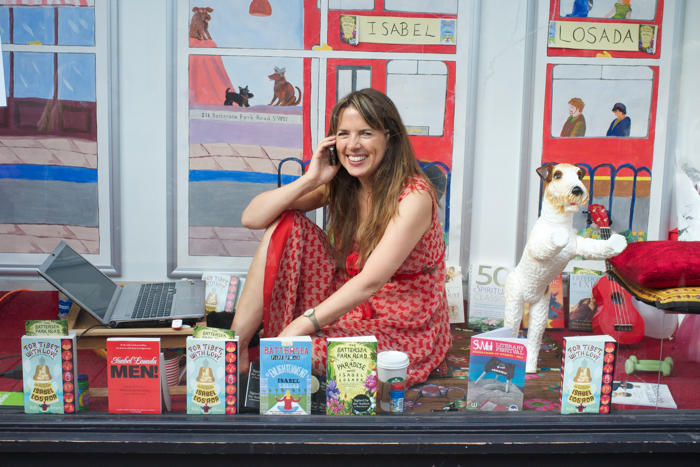4 steps to plan your writing projects

If you’ve got some unexpected time on your hands over the holidays, this can be a great time of year to catch up on some reading, do some writing – or simply plan some writing.
[rt_reading_time label="Reading Time:" postfix="minutes" postfix_singular="minute"]
Christmas is a funny time of year for writers. While some years you may be so busy with social gatherings and visiting family you can’t even think about writing, this year things are very different for many of us. You may be unexpectedly on your own – or at least spending a scaled-back Christmas with far fewer people.
Where I live, in the South East of England, we’re locked down in ‘Tier 4’ with no mixing or travel allowed. The only Christmas mixing I’ll be doing this year is gin with tonic. So that’s a bonus.
I find the ‘dead time’ between Christmas and New Year particularly conducive to planning – even in a ‘normal’ year. Most people are off work, there are few distractions, and you have a hiatus between two public holidays when nothing much is going on to take a pause and do some strategic planning for the year ahead.
If strategic planning sounds too businessy and administrative for a creative writer, remember that, if you are a writer, writing is your business – at least part of it – and it deserves your considered attention. You can scribble on the back of an envelope, use that nice new notebook you got for Christmas, juggle Post-It notes, fill in a spreadsheet, start a new planning document in Scrivener, or try various digital project planning tools such as Trello or Mindmeister. Personally, I use a mix of spreadsheets and Scrivener – but I sometimes write things down or flirt with Mindmeister. But do whatever works for you.
Here are four key areas of your writing life to think about:
1. Contracted Projects
If you’re lucky enough to have a publishing contract, this should be your first priority. When is it due? Check your delivery dates, and re-negotiate them if necessary. I know from experience that publishers always like as much notice as possible if you’re likely to miss a deadline! What milestones do you need to hit over the next year in order to deliver on time? How will this affect and fit around your other projects and commitments?
2. Works in Progress (WIP)
What are you working on at the moment? It can be easy to lose track if you’ve started writing multiple projects, abandoned some, got distracted by an exciting new project, or forgotten about that great thing you started at the beginning of the year – but life (and COVID) got in the way. Revisit any projects you’ve actually made a start on, make a list, and sort them into order of priority. What will you actually work on next year? What’s realistic? How many words will you aim for, over what period? Which WIP will you finish next year? If you’re self-publishing, which WIP will you publish next year?
3. Ideas List
Next is your list of projects you’ve not even started. This may be an existing list you keep somewhere, or something you want to start now (see next step). Many of us jot down new ideas as they occur to us, so we don’t forget. (Though Val McDermid does the opposite – she says: “If it’s not interesting enough to remember, it’s not interesting enough for a reader to want to read about it.”) If you do keep a list, revisit and update it. Do the ideas on the list still excite you? Which ideas did you remember – and keep mulling over? Are there any you want to drop? Are there any you want to move up to your WIP list and start working on next year?
4. Something New
A time when you can pause and reflect is a great time to get creative. Use this time to generate at least one new idea, which you can add to your Ideas List – or create an Ideas List from scratch. Use whatever method works for you to generate ideas. What have you always wanted to write? What would you like to read, but hasn’t been published? What aspect of your life, experience or career can you draw on? What could only have been written by you? What news stories have grabbed your attention this year? What do you know a lot about? What topic fascinates you? What do you wish you’d written? What did you particularly enjoy watching on TV or Netflix this year? Why? What music inspires you – and would be a great soundtrack to a movie adaptation of your book? Think about how things might have turned out differently – for you, for someone you know, or in the world at large. Answer the question: “What if..?” Go on a long walk and let your mind wander. You can generate a long list of ideas – but only one might make it to your Ideas List.
The time and space to think up new ideas and new stories is a luxury – use it. Nothing in the world happens without it first being an idea. “Fantasy’s reality’s childhood”, as The Carpenters once sang.
Repeat this process – and come up with at least one new Something New – every year. This can go onto your Ideas List, and from there might work its way up to your Works in Progress. When one of these lands you a publishing deal, that becomes one of your Contracted Projects! Your best ideas will rise to the top of this list – like a pyramid of publishing projects.
Whatever you’re doing over the next week or so – and whether that involves writing or not – be sure to take a pause. And I wish you a peaceful Christmas, and a productive New Year.
This blog post is based on this week’s Tip of the Week in the Publishing Talk Newsletter. Read it online, or sign up to receive the next newsletter.
Photo by Alejandro Escamilla on Unsplash


